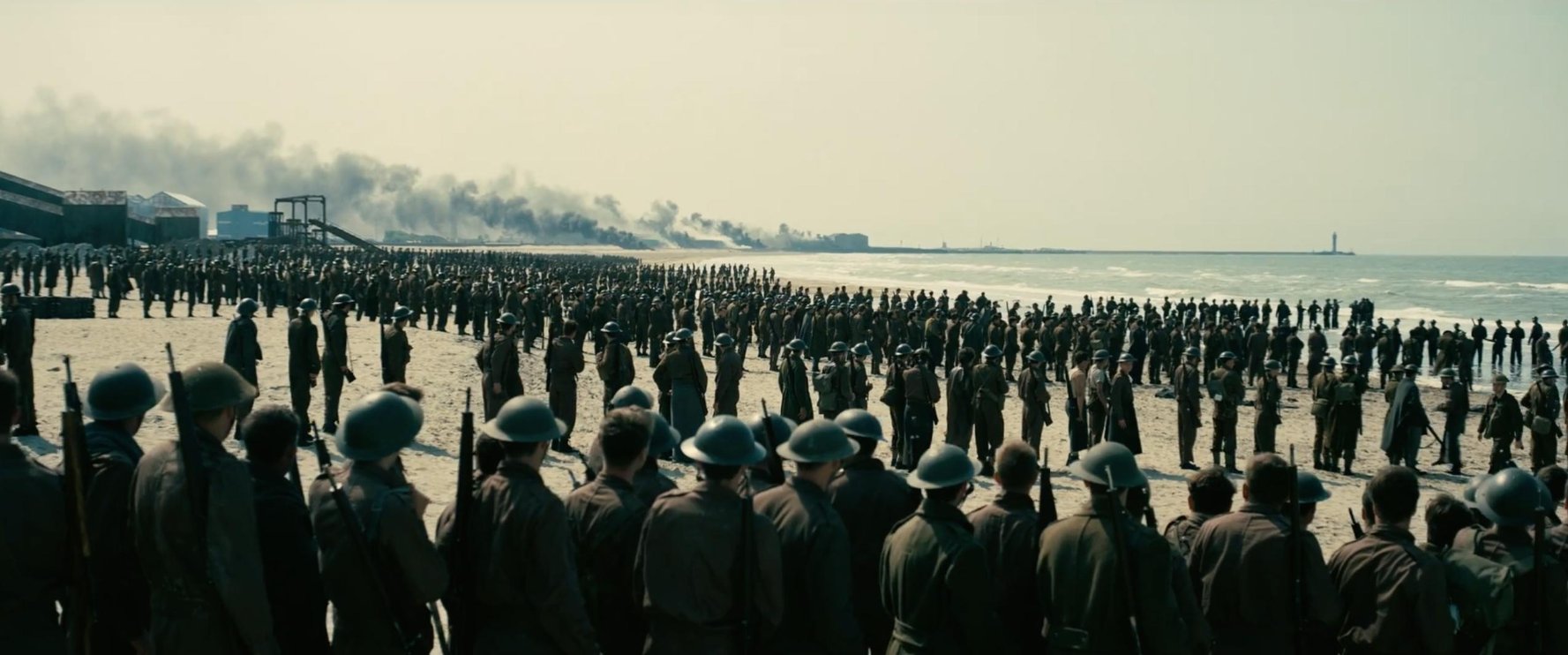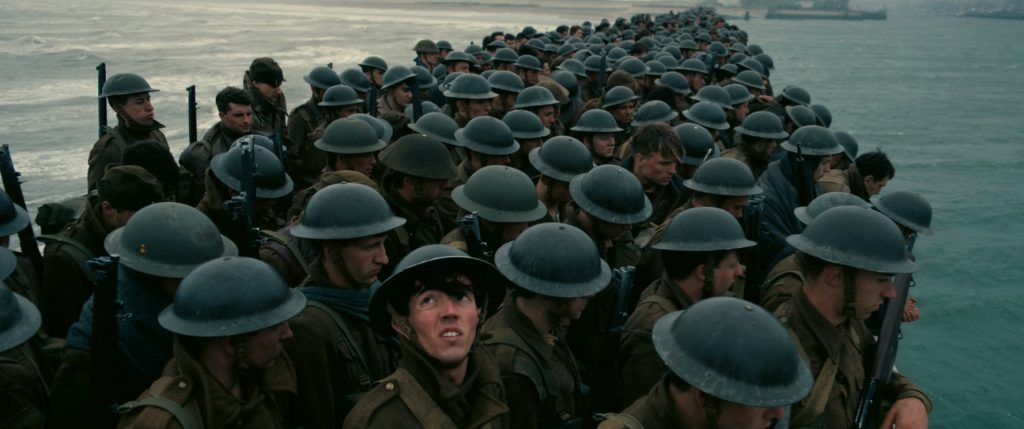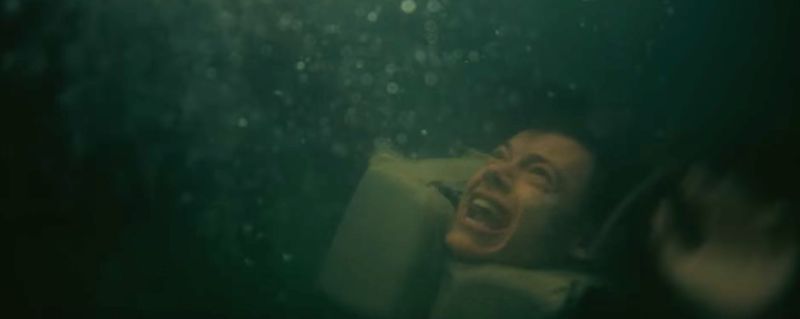DUNKIRK Review

Director: Christopher Nolan
Genre: War Drama, Action
Year: 2017
Truth be told, I’ve never found Christopher Nolan to be a particularly compelling director. It’s an unkind, maybe even unfair thing to say, but to me he has always been something of a poor man’s Kubrick. That is to say, there have only been so many directors that have consistently been able to finance their most complex, uncompromising visions while maintaining complete creative control. And yet, for all the praise from moviegoers and critics, his films just don’t live up to the hype. Despite being given positively staggering budgets and all the best toys to bring his ideas to the screen, his films almost never hold up to any real degree of scrutiny, his penchant for bombast causing his narratives to get lost in the wash of his massive action set pieces. There is no doubt he has a knack for the grandiose, but the worlds he conjures are often built on shaky foundations. Too many people—Nolan included—mistake spectacle for revelation. That being said, DUNKIRK is Christopher Nolan’s best film, and maybe even one of the best WWII films at that.
First, if you have the opportunity to see DUNKIRK in the IMAX format, you absolutely should do so. This film is astonishing in 70mm. Even so, auditory and visual triumphs are pretty much par for the course for Christopher Nolan. What is more important here is that DUNKIRK sees a matured Nolan—one who has finally realized not only his strengths as a director, but his weaknesses, and adjusted accordingly. Gone is the long-winded, exposition-heavy dialogue that has bogged down his previous films. So, too, is his over-reliance on familiar faces to carry said dialogue and to distract from his less-than-stellar character writing. He has even dialed back on his bravado, allowing events to unfold naturally on the screen. As a result, DUNKIRK is given considerably more room to breathe, and is all the better for it. However, that is not to suggest that audiences are given any extra room to breathe. No, Nolan’s latest is an exercise in unrelenting terror.

OMG I think I see Harry Styles
The obvious comparisons will be made to SAVING PRIVATE RYAN, the other huge WWII survival blockbuster, but the similarities begin and end there. In that film, Steven Spielberg sought to depict the senselessness of war by bringing it to the individual level, personalizing it with a name and face. His goal was for audiences to understand that Ryan could be anyone’s son, brother, or friend. Nolan had something else in mind. In a move that is certain to vex more than a few moviegoers, Nolan almost completely ignores the individual. Even DUNKIRK’s main characters are hardly distinguishable from the next soldier over, with few lines being delivered between them and many going unnamed (which is frankly bizarre for such a star-studded cast). Even Tom Hardy, one of modern cinema’s most celebrated talents, spends almost the entirety of his screentime muffled behind an aviation mask. It’s easy to lose track of the characters we are supposed to be following, and it can be confusing, even frustrating, trying to make heads or tails of what is happening amidst all the chaos; but then again, that’s war, right? However, in doing this, Nolan is able to adopt a more macroscopic view of this comparatively small, but no less important, chapter of the war.
The film opens on a young English soldier narrowly escaping being gunned down within the streets of Dunkirk, France, before finding himself on a beach where some 400,000 English and French soldiers await evacuation. The sheer number of men is staggering, yet compared to the vast stretch of beach and boundless sea beyond, they appear all but insignificant. The beach serves as a brilliant framing device, illustrating the place of these men within the bigger picture of the war. Scope and scale alone dehumanize the men, more than a lack of identity ever could. To the boots on the ground, their awaited evacuation is an all-important, all-encompassing event. To the officials across the pond, it is merely resource management. But from an external, elevated perspective—say, of dive bombers—they are like ants to be picked off. Barely a word is spoken before a droning picks up over the lapping of waves and the men are strafed by German aircraft. It’s a bold directorial decision, but it pays off tremendously. By foregoing introductions and thrusting viewers directly into the action, Nolan seizes on the visceral immediacy of war. Stop for just a minute, and you’re dead.

Luftwaffe inbound? Guess I’ll die
And yet, for how effectively he strips away personhood to highlight base survival instinct, we must not forget that it is Nolan we are dealing with—one way or another, he will find a way to work in his at least one of his many pet themes. Chief amongst those, and the driving force behind DUNKIRK, is time. A history lesson on the landmark Operation Dynamo—the largest, most successful military evacuation in history—as much as it is a harrowing tale of survival, DUNKIRK is really about convergence. The story (or stories) is woven from multiple perspectives, all compressing, dilating, and overlapping as they close in on one another in the final moments before that massive, civilian-led evacuation. To understand this narrative mechanism, we must first understand that time is relative, not linear. It is made up of moments, and the spaces between them.
Accentuating this is another fantastic score by the one and only Hans Zimmer. Constructed around the leitmotif of a ticking clock, Zimmer delivers the most nerve-rattling, acutely distressing auditory thematic since THE WITCH. The synergism of sight and sound is truly masterful. Watching young men—boys, really—survive being blown to bits by little more than luck, only to immediately face burning to death or drowning, is horrific, and Zimmer’s score heightens the dread exponentially. The score rises during the film’s incredible dogfight sequences, crescendoing as planes fix on their targets, thunders to the exploding of bombs, and becomes downright frenetic as ships turn over and men claw for their lives in blind panic. I would say that, in retrospect, there are times when his musical cues are perhaps a little too on the nose, but the events that occur on the screen are so engrossing that a lack of subtlety in sound design is hardly an issue. If there is a complaint to be made, it’s that the film combined with its score makes for an exhausting experience. There were times when I found myself literally gripping my seat, having to ease off. But, again, is war not exhausting?

I’m still not quite sure who Harry Styles is, tbh
There are countless clichés about war. And, for every one, there is a movie running it into the ground. To my memory, aside from THE THIN RED LINE (also scored by Hans Zimmer), there has been no other war film that has explored both the grossly, abjectly physical and the metaphysical—and so well, I might add. But, unlike Terrence Malick’s WWII masterpiece, there is no inherent grace to the world. The grey and torpid beaches of DUNKIRK are a Purgatory, where 400,000 souls wait somewhere between life and death, salvation and damnation. Nature is not sublime, nor is it nurturing, or in any way benevolent. It is not even benign. It is indifferent to the plight of man. More men disappear into the cold and dark of the sea than die by bullet or bomb. Ashore, seafoam and drifting sand, like time, build up over the ignonimous dead, subsuming them. Reclaiming them. It makes no distinction between good and evil, just or unjust. No one, no thing, means more than the next in the grand scheme of things. What grace there is, is borne out of the hearts of those who wish to see it in the world. Courage and sacrifice are what will save us. Maybe that is a cliché, after all.
Verdict: Recommend



